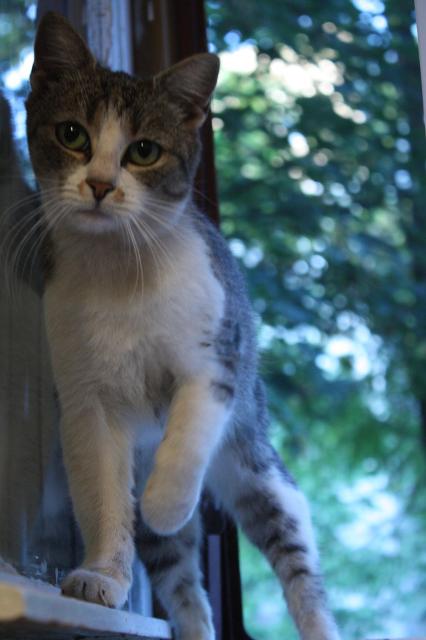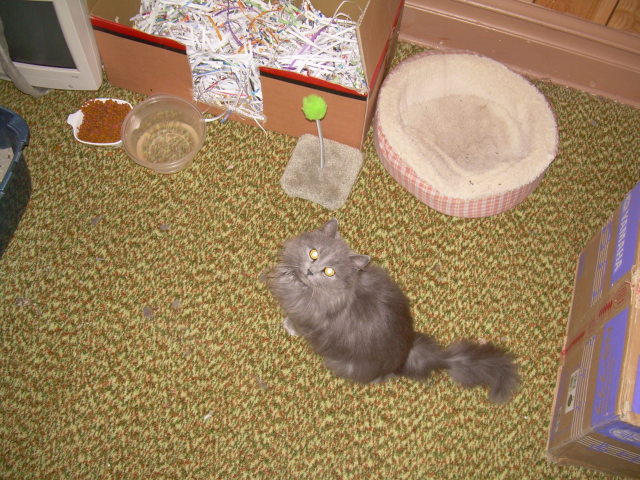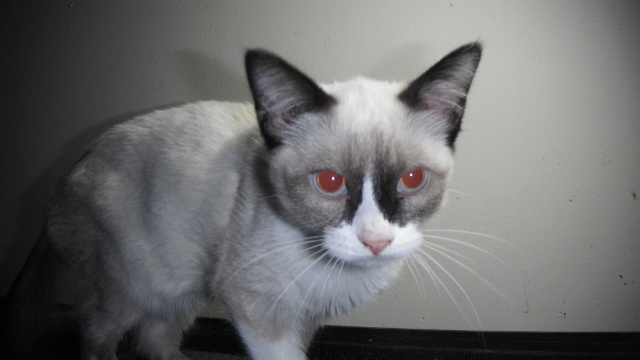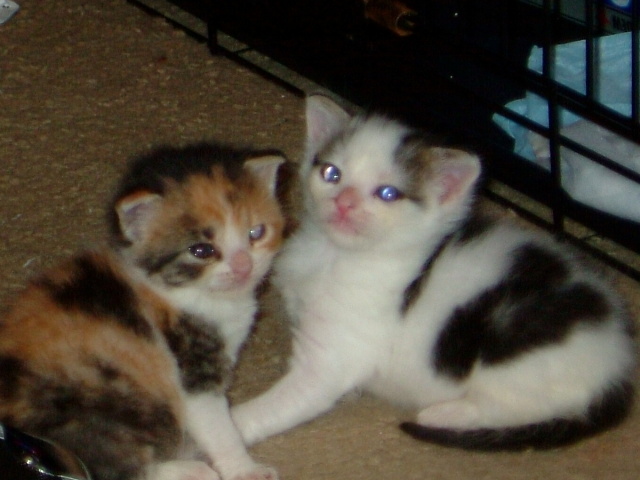QuestionMy cat had 3 kittens late mothers day and had her 4th kitten around 12 the next day. She still has two hard lumps in her abdomen 3 days later. I am certain that these are kittens because I can feel the heads and the ribs on one of them. How do I get her to finish having the remaining kittens? Is she or the remaining kittens in any danger? This is her second litter so I don't understand why she has yet to finish labor.
AnswerCarrie,
I suspect that you may be right that there are still little ones that haven't been born yet, but the only way to know for sure would be to take her to the vet for a complete physical examination, if the vet feels that it's warranted s/he'll recommend an ultrasound or x-rays to confirm that there are still babies in mom's womb. The likely course of action if there are kittens remaining would be for mom to have a caesarian which should happen ASAP to have the best chance of the babies coming out alive and prompt surgery is also important to prevent mom from experiencing any serious health problems. I strongly suggest that if your vet finds that your queen is in need of a caesarian that you have her spayed at the same time to prevent further pregnancies and obstetric complications. Having mom spayed won't affect her ability to nurse her kittens, most vets will use tissue glue or buried dissolvable stitches so that the kittens can't get ahold of them when they're rooting around looking for a nipple. When you take mom to the veterinarian's office it's very important that you bring her kittens along, that way if mom has to stay overnight you won't risk severing the maternal bond and having to hand rear newborn kittens. If this kitty does have deceased kittens in her womb she could develop a nasty infection that could end her life.
There is an incredibly serious pet overpopulation issue that affect shelters and rescue organizations. Unfortunately many animal loving staff working for animal welfare organizations are forced to euthanize healthy, adoptable animals simply because they don't have the time, space or resources to devote to each animal until their forever family comes along to adopt them. The euthanasia rates for shelter cats tends to be much higher than that of dogs, possibly because cats are seen as disposable or simply because pet parents aren't taking the simply step of controlling pet overpopulation by spaying/neutering their cats.
There are many good behavioral and medical reasons to spay/neuter our cats. Cats that have been spayed/neutered are prevented from getting uterine, ovarian or prostate cancers. The earlier in life that a cat is spayed/neutered the less likely s/he will be to develop prostate or breast cancers later in life. Unspayed female cats are at risk of developing a potentially life threatening uterine infection called pyometra which causes the womb to fill with pus, if the uterus ruptures and spreads infection throughout the abdomen the cat's chances of survival are pretty low. The only treatment for pyometra is to perform an emergency spay, this procedure is much riskier than a routine spay because the cat is already quite sick which is associated with higher risks of anesthetic death and post surgical complications. The emergency spay is more complicated and time consuming so it tends to be quite a bit more expensive than a routine spay.
Many parents believe that the best way for their children to learn about the miracle of birth is to watch the family pet give birth, I strongly advise against that since so many unwanted pets are destroyed every year in shelters. If you do want your children to see a cat (or other domestic pet) give birth there are videos on youtube that will serve the purpose without having the additional burden of finding permanent, responsible homes for unwanted kittens.
It's extremely important that you keep mom and her offspring separated from other family pets because newborn kittens don't have much immunity against viral or bacterial infections. I recommend that anyone handling the kittens or their mother makes sure to wash their hands with hot, soapy water before and afterwards to minimize the risk of passing along infections that may be very serious for newborn kittens. If you have any other intact male cats in your household it's extremely important to keep mom and her babies separate from them because toms have been known to kill kittens to force mom back into season sooner than she would normally cycle so that they can mate with her. I am willing to offer information on kitten training, weaning, socialization and development if you'd like more information on how to give these babies the best possible start in life.
The leading cause of death in cats living in North America is euthanasia secondary to behavioral issues. This statistic is heart breaking because many behavioral issues can be prevented through appropriate training or minimized by spaying/neutering our cats. Common behavioral problems including inappropriate elimination (urinating or defecating outside of the litter box), fighting with other cats (the resulting injuries from cat fights often require medical care because bite wounds tend to get badly infected forming abscesses which must be drained under anesthetic, flushed with sterile saline and treated with antibiotics), queens howling to advertise their availability to mate, tom cats caterwauling and fighting to win the right to mate with receptive queens and wandering over a large area are all issues which can be prevented by having the cat spayed/neutered before they reach sexual maturity. Behaviors like house soiling or fighting can sometimes occur with cats that have been spayed/neutered however these behaviors are often related to things like improper introductions to new cats in the household, poor litter box hygiene, scented litter, and other issues which can be easily solved.
Ultimately spaying and neutering our cats is a responsible and ethical choice which saves countless lives each year. For pet parents that are having difficulty getting the money together for routine vet care I may be able to help find a solution to those issues. I keep an ever growing list of resources that may be willing to cover part or all of the cost of routine care like kitten vaccines and spay/neuter procedures. The only information that I ask for in these cases is that the pet parent provide the general area they are writing from - in Canada or the US the province or state is fine. Spaying and neutering helps cats to live longer, healthier lives and as kitty caregivers that love our pets we all want to have as much quality time as possible with our furry friends.

 Cat meaowing after spayed
QuestionQUESTION: Hello, I am having a problem with my
Cat meaowing after spayed
QuestionQUESTION: Hello, I am having a problem with my
 How pregnant is my cat
QuestionQUESTION: I was adopted by a local neighbor hoo
How pregnant is my cat
QuestionQUESTION: I was adopted by a local neighbor hoo
 albinism
Question
Cat
Hello! I was wondering if you could
albinism
Question
Cat
Hello! I was wondering if you could
 My 12 year old indoor/outdoor male escaped 2 weeks after a recent move
QuestionEefa and our lost blac
QUESTION: We trie
My 12 year old indoor/outdoor male escaped 2 weeks after a recent move
QuestionEefa and our lost blac
QUESTION: We trie
 2 Ferals
Question
Sister and Brother at
Hello!
Im so glad I fo
2 Ferals
Question
Sister and Brother at
Hello!
Im so glad I fo